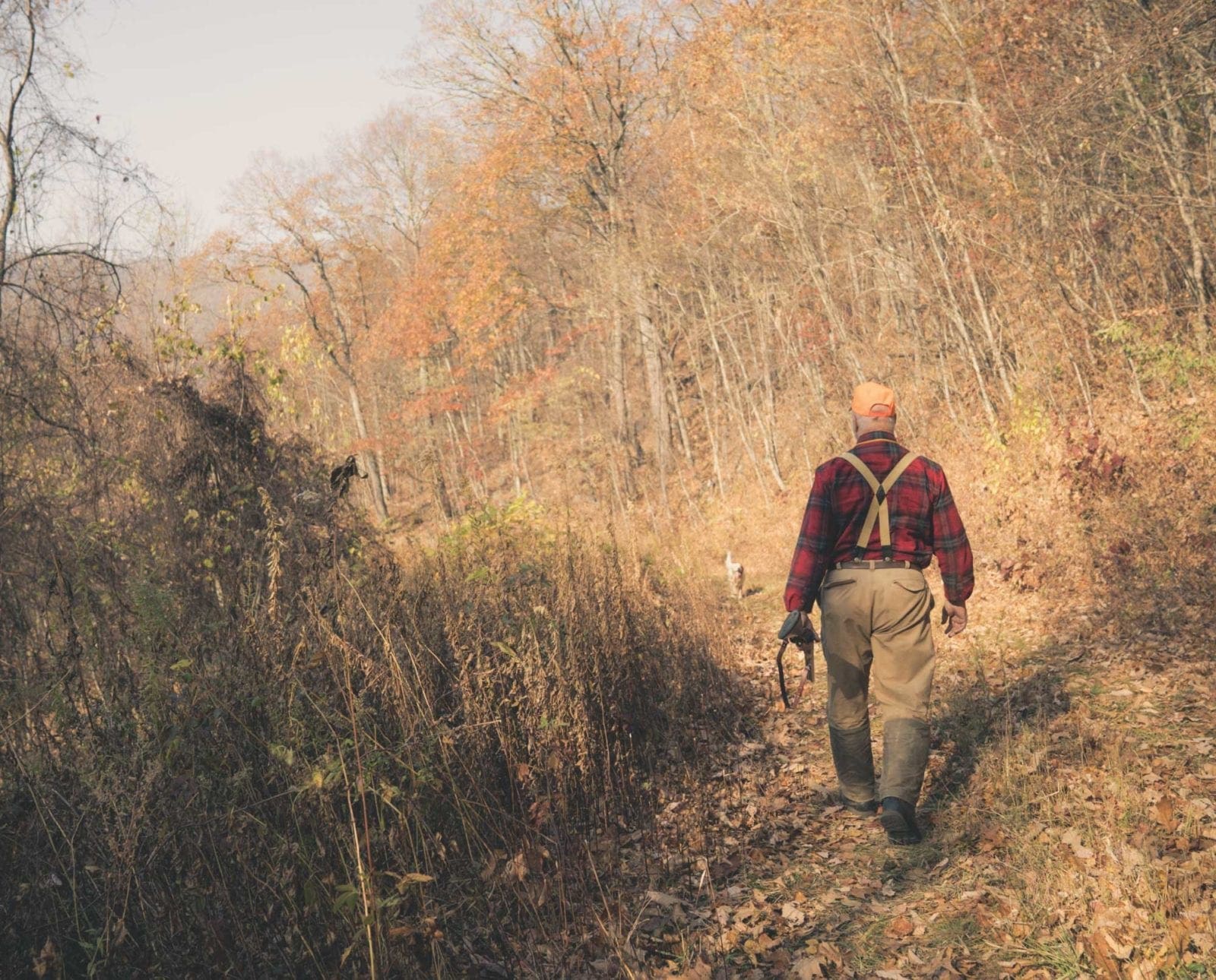Home » Hunting Rules, Licenses, and Seasons » Bird Hunting in North Carolina, Grouse, Quail, Woodcock, Pheasant, and More
Bird Hunting in North Carolina, Grouse, Quail, Woodcock, Pheasant, and More

Project Upland is an editorial initiative to capture the cultures…
North Carolina is first in flight — and first in flushing.
The Outer Banks and coastal regions of North Carolina are beautiful places to go on vacation, but the entire state is good for bird hunting. There are numerous ways to access the three main areas: mountain, Piedmont and coastal. Dove fields are found throughout the state, as are controlled hunting preserves. These areas allow for only domestically raised game birds to be taken, and you will need a license to hunt them. That may either be the normal bird hunting license or a separate controlled hunting preserve license. In order to access private lands posted with signs, you will need written and signed permission by the landowner.
Residents pay $20 for an annual hunting license. Nonresidents pay $80 for an annual license or $60 for a 10-day license. Habitat management fees cost $4.
Ruffed Grouse
The Piedmont region, which is in the middle of the state between the mountains and the coast, is not especially good for ruffed grouse. Nevertheless, you might be able to find them in the South and Brushy Mountains. About 1.5 million acres of ruffed grouse habitat overlaps with the Blue Ridge Parkway, Great Smoky Mountains and the Pisgah National Forest of western North Carolina. You should have luck walking along gravel roads and in elevations between 2,500 and 5,500 feet.
The season opens October 16 and closes February 28 with a daily bag limit of 3.
American Woodcock
The American woodcock is one of seven shorebirds in North Carolina. It’s unique among them as a bird that makes its nest in the forest. They are a permanent resident along the coast of North Carolina and are fairly common in some forest habitats. You can find them in the Tidewater region during the winter, as well. As you go farther into North Carolina, the birds are less common. As with all migratory species for bird hunting in North Carolina, you will need an HIP certification.
The season opens December 14 and closes January 27 with a daily bag limit of 3.
Ring-Necked Pheasant
You will have a hard time finding ring-necked pheasant while bird hunting in North Carolina. Currently, they are really only found in the coastal region between Oregon and Barden Inlet. There might still be a population on Core Banks.
The pheasant hunting season opens November 11 and closes February 1 with a daily bag limit of 3.
Bobwhite Quail
Like in many nearby states, the bobwhite quail populations in North Carolina have sharply declined over the past few decades. That doesn’t mean you can’t find them while bird hunting in the state. While they can technically be found statewide, they are most abundant in the east. There is suitable habitat in various places around the Piedmont and mountain regions, as well.
The season opens November 18 and closes February 28 with a daily bag limit of 6.
Other Species for Bird Hunting in North Carolina
You can hunt crow on Wednesday, Friday, and Saturday from June 6 to February 28. Various holidays are open for crow hunting in addition to those days, but you may not hunt on Sundays. The mourning dove season is split into three phases: September 1 to October 6, November 17 to December 1 and December 10 to January 31. You may bag up to 15 dove in a day. For Sora and Virginia rails, the season begins September 1 and goes until October 13. It picks up again on October 22 and closes November 22. The daily bag limit is 25, including Sora or Virginia singly or in aggregate. Snipe season opens October 27 and closes February 28 with a daily bag limit of 8.
Related Conservation and Non-Profit Organizations for Bird Hunting in North Carolina
North American Versatile Hunting Dog Association (NAVHDA)
Hunter Safety Course and Dog Training for Bird Hunting in North Carolina
North Carolina has no minimum requirements for hunter education. Classes, however, are taught at a sixth grade level and have to be completed without outside help. An online course costs $13. You must have either a hunter education certificate or a hunting heritage apprentice permit before purchasing a license.
You may train your dog for bird hunting in North Carolina during commission-sanctioned field trials. For field trials, only shotguns with live ammunition and firearms with blank ammunition are allowed. You may not use quail or pheasant during field trials when shotguns are in use. Any quail or pheasant used must be banded. During the closed season, you may use domestically raised game birds and a shotguns up to a shot of number 4 size.
The bird hunting season dates, game bird species available, and other information is subject to change. The article may not reflect this. Please visit the North Carolina Wildlife Resources Commission for the most up-to-date information on bird hunting in North Carolina.
Project Upland is an editorial initiative to capture the cultures and traditions of upland bird hunting. We seek to inspire a future generation of upland bird hunters to understand the essence of hunting traditions and the critical cause for conservation.




You forgot about the grandest of all game birds. http://www.turkeydog.org/
I’ve only moved to NC a few years ago and have not yet found a good area for upland bird hunting which I am very interested in. I respect conservation, I respect land owners.